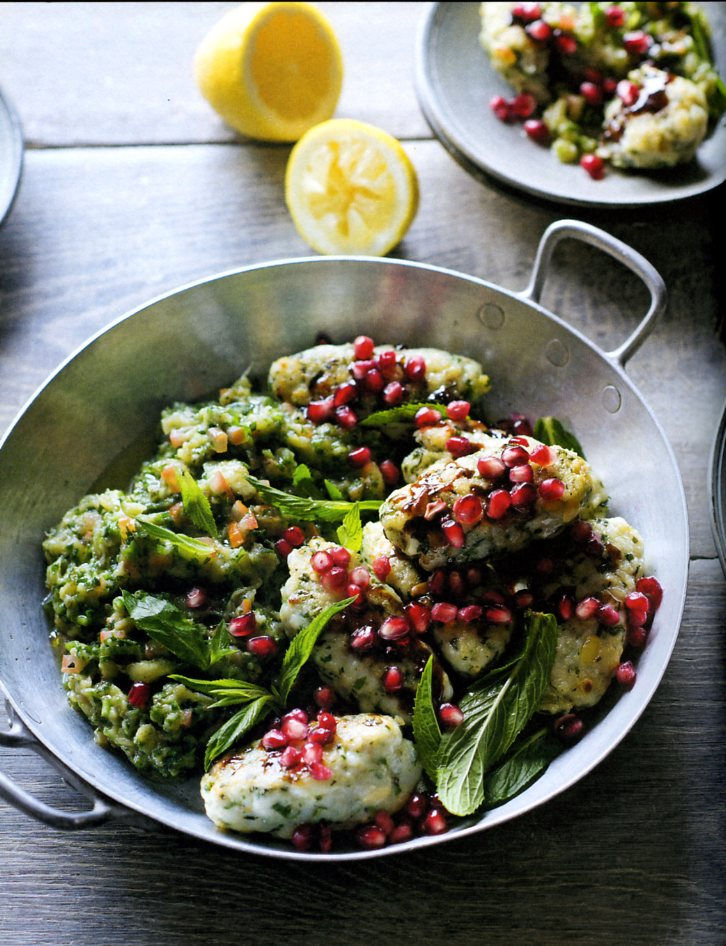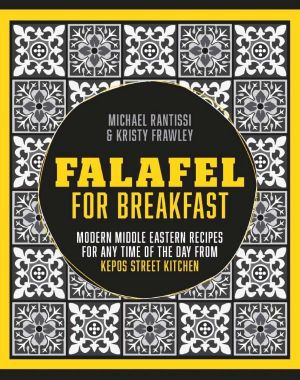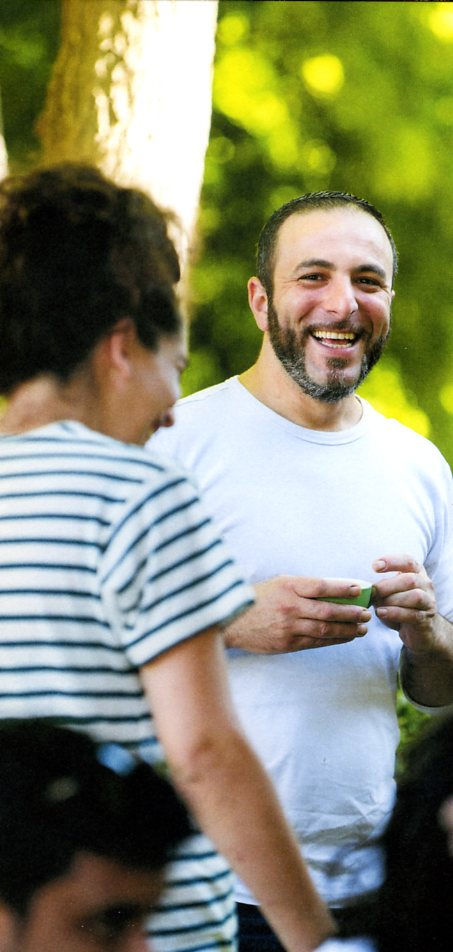Lucky dip - fish kefta from where?
- Sep 2, 2019
- 5 min read

I think this might be a case of a dish that looks gorgeous - great food stylist there - but when you come to look at the recipe you wonder whether it is actually going to be that tasty. And where exactly does it come from - kefta seems to be the spelling for a Moroccan dish, but I think this is more like a Middle-Eastern thing? Mind you lots of people seem to lump North Africa into the term Middle-East - which, of course, it really isn't. If they just said Mediterranean then it would make more sense. The recipe does sound very easy, although I would be worrying I think that the mixture wouldn't stick together when you cook it - you fry them on both sides and then finish them in the oven. I suspect, knowing my luck with such things they might all fall apart in the frying pan.
Apart from the ingredients - well there are hardly any - just fish, parsley and pine nuts in the kefte - which are more Middle-Eastern than Morrocan, the recipe also comes from a book called Falafel for Breakfast, which is written by a cook and restaurateur in Sydney who hails from Israel I believe - so again - not Moroccan.

The book - I may have mentioned it before - was a present from my daughter-in-law. I think it is one of her favourite books, because I've seen it out on her cooktop a few times when we have gone around to her house. And it does state quite clearly on the cover that it is Middle-Eastern food. However, when you google 'fish kefta' you get a whole lot of Moroccan recipes. Kofta seems to be the term used in the Middle-East. But I'm being picky. It just confused me when I went looking for alternative versions, and as I am writing this, I am still not sure whether to go for the Moroccan versions or the Middle-Eastern ones. But, as I say, I'm being picky - they're fish cakes really aren't they? Add whatever you like to the mix.

The authors of the book are, as you can see from the cover - Michael Rantissi and his partner Kristy Frawley. He is from Israel and is the chef. Kristy writes out the recipes and manages the whole thing I think. But yes - he is Israeli - so Middle-Eastern not Moroccan.
His recipe is supremely simple - 1kg white fish minced coarsely, 2 handfuls of chopped parsley and 80g chopped pine nuts mixed with salt and oil, fried on each side until golden and then finished in the oven for 3 minutes. Then you make it look pretty with mint leaves and pomegranate seeds. As I have said above I am tempted to think that it is so simple that it might be just a tiny bit tasteless. But you never know. Nevertheless I turned to that other Israeli cook Yotam Ottolenghi - who, of course, has several versions, which sound much more interesting although, inevitably they are a lot more time-consuming and complicated. Here are two of them - Codcakes in tomato sauce and Fish koftas with beetroot relish - pictures below.
Both of Ottolenghi's recipes have rather more spices and herbs in the mix - eggs too to keep them together and the one on the left - the cod cakes - has them cooked in a spicy tomato sauce.
So what about the Moroccans who make kefta not kofta? I tried to find a Greg Malouf and Robert Carrier recipe but failed. Elizabeth David didn't do this either, but Claudia Roden and Melbourne's Shane Delia came up trumps with two delicious sounding recipes. Claudia Roden's is much less complicated and she simply calls them Fish Cakes - or Kefta Bil Hout, whereas Shane Delia complicates it all by cooking them in a sauce and serving with a salad and fried potato bread. Looks pretty wonderful though. That's it on the left. The Claudia Roden recipe is from her book Arabesque, and I cannot find a copy of the recipe online, so I have given it below.
FISH CAKES - KEFTA BIL HOUT
500g fish fillets, skinned
1 1/2 tsps ground cumin
good pinch chilli pepper
salt
3 garlic cloves, crushed
1 egg, lightly beaten
peel of 1/2-1 preserved lemon, chopped finely (optional)
handful of chopped flat-leaf parsley or coriander, or a mix of both
about 1 tbsp flour
olive oil for deep frying
To garnish - one lemon cut into wedges.
Cut the fish fillets into pieces and put them into a food processor with the rest of the ingredients except the flour, Process for about 5 seconds only, until the ingredients are finely chopped and well mixed. It is important not to let it turn into paste.
Sprinkle the flour on to a plate. Wet your hands, take a lump of the fish mixture the size of a small egg, roll it into a ball, and flatten it. Do the same with the rest of the mixture, then turn the fish cakes in the flour to cover them all over.
Shallow-fry the cakes in hot oil until browned, turning them over once. Lift them out and drain on kitchen paper. Serve hot or cold, accompanied by lemon wedges. She also suggests serving them with grated cucumber or salad leaves.
OR - you can use the same fish mixture as above to make balls rather than cakes. These are very good poached in a tomato sauce. For the sauce, fry 4-5 finely chopped garlic cloves in 2 tbsp olive ol for a moment or two, add 1kg peeled and chopped tomatoes, 1-2 tsps sugar, salt and a pinch of chilli pepper, and cook for 10 minutes. Roll the fish mixture into balls, drop them into the sauce and simmer for 5 minutes.

There was one other rather tempting looking recipe that I found by one Andy Harris. I guess it's similar to the other two Moroccan versions, though there is no preserved lemon in the mix. They look pretty tasty though.
So there you go - fish cakes from somewhere around the Mediterranean. I'm sure you can invent additions or subtractions yourself and what to serve it with. I saw one version that grilled the fish cakes on a barbecue and then put them in a roll with various salad things. And the Moroccans seemed to favour sardines a bit as the chosen fish, which is interesting. Much fiddlier to use I would think. Anyway - Mediterranean comfort food.
It's actually a good book even if I have been a bit dismissive of this particular recipe. But that's the one I picked and so be it.




















Comments